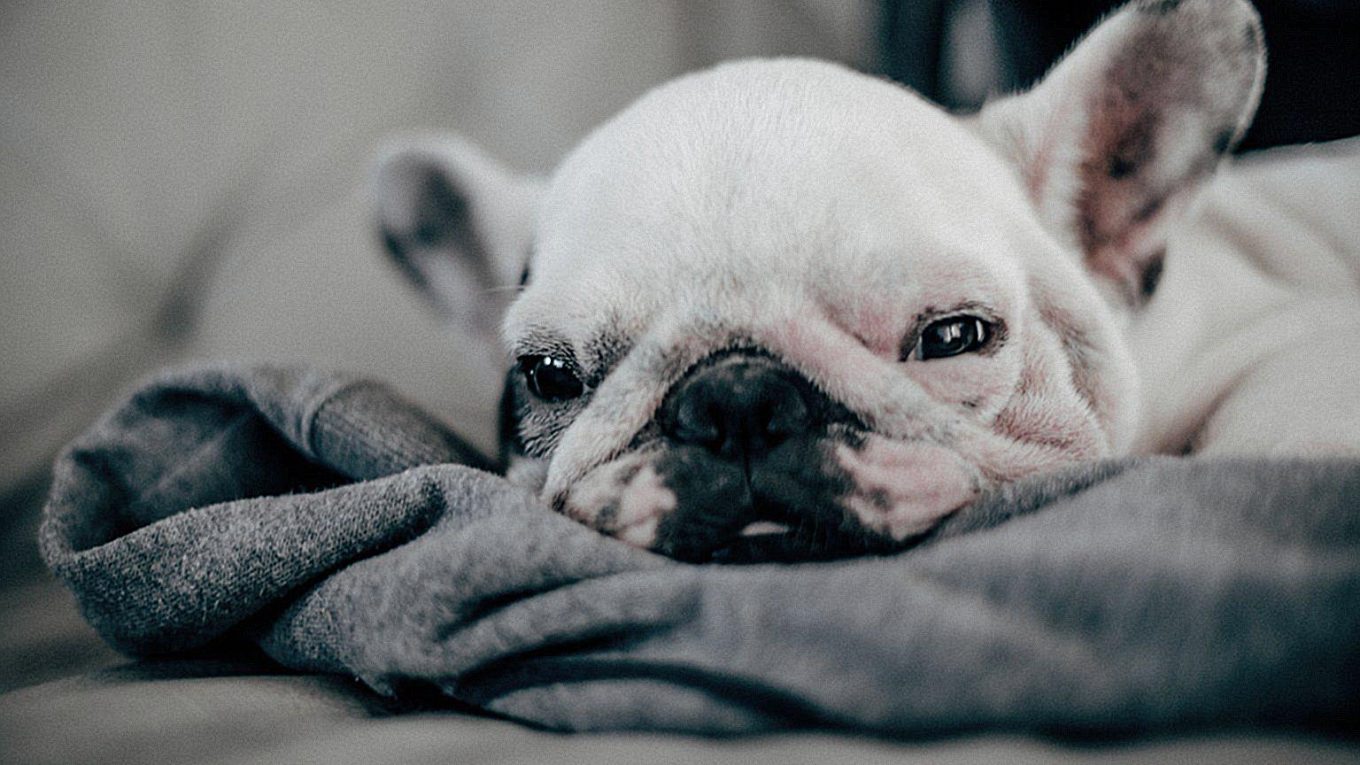Do French Bulldogs have trouble breeding?
Hey there fellow dog enthusiasts.
Contents
- 1 The Unique Body Structure of French Bulldogs
- 2 The Challenges of Natural Mating and Giving Birth
- 3 Brachycephalic Syndrome in French Bulldogs
- 4 Health Issues That Contribute to Breeding Difficulties
- 5 Irresponsible Breeding Practices for Appearance Over Health
- 6 Genetic Disorders in French Bulldogs and Reproductive Success
- 7 Solutions to Help French Bulldogs Breed Successfully
- 8 Conclusion
Are you as smitten with French Bulldogs as I am? Prepare to have your mind blown by some mind-boggling insights about these adorable little furballs in today’s blog post.
French Bulldogs, with their squishy faces and heart-melting charm, have skyrocketed in popularity as pets. But here’s the thing – beneath their irresistibly cute exterior lies a hidden concern that not everyone knows about: the hurdles they face when it comes to breeding.
While French Bulldogs are undeniably fantastic companions, let me tell you, their journey to parenthood is no walk in the park. In this post, we’ll delve into why French Bulldogs often encounter obstacles during the breeding process, shining a light on this crucial aspect of their well-being.
So, if you’re a dog lover like me and crave an honest understanding of what goes on behind the scenes of French Bulldog breeding, buckle up and keep reading.
The Unique Body Structure of French Bulldogs
French Bulldogs are beloved companions known for their adorable appearance and affectionate nature. However, their unique body structure can pose challenges when it comes to breeding. In this blog post, we will explore the intricacies of their anatomy and discuss how breeders can overcome these obstacles to ensure successful reproduction.
The Short and Compact Body Shape:
French Bulldogs are characterized by their stocky build and a shorter snout, known as a brachycephalic muzzle. While these features contribute to their charm, they can also lead to respiratory issues during breeding. Their narrowed airways and smaller nostrils make it harder for them to breathe properly, especially when exerting themselves.
Large Head and Alignment Difficulties:
French Bulldogs have relatively large heads compared to their body size. This mismatch in proportions can make it challenging for them to align their bodies correctly during mating, hindering successful reproduction.
Short Limbs and Positioning:
Their short and stout limbs can further complicate the breeding process. French Bulldogs may struggle to position themselves appropriately for successful mating due to their compact build and shorter legs.
Tucked Tail:
The tail of French Bulldogs is often tightly tucked against their bodies, which is a breed characteristic. However, this can interfere with proper alignment and positioning during mating, requiring extra attention and assistance.
Artificial Insemination:
Given the unique challenges posed by their body structure, many breeders turn to artificial insemination (AI) as a viable solution for successful reproduction. AI allows for controlled breeding and increases the chances of fertilization while minimizing stress on both the male and female dogs.
Conclusion:
Breeding French Bulldogs requires a thorough understanding of their unique body structure and the potential challenges it presents. Responsible breeders should prioritize health over appearance, ensuring that both male and female dogs undergo thorough health screenings before breeding. Consulting with experienced veterinarians and breeders can provide valuable guidance and support in navigating these challenges.
The Challenges of Natural Mating and Giving Birth
French Bulldogs are undoubtedly adorable, with their unique appearance and loving demeanor. However, their distinctive physique presents some challenges when it comes to natural mating and giving birth. Let’s dive into the world of French Bulldog reproduction and explore the hurdles that breeders face, as well as the solutions that can ensure successful outcomes.
The Compact Build Conundrum
French Bulldogs have a compact and muscular build, which can pose difficulties during natural mating. Their short and stocky frame may hinder the male from mounting the female effectively. Likewise, the female may struggle to assume a receptive position during breeding. These physical limitations can make it challenging for French Bulldogs to engage in successful natural mating.
Brachycephalic Syndrome Blues
In addition to their compact build, French Bulldogs also suffer from a condition called brachycephalic syndrome. This condition affects their respiratory system and leads to breathing difficulties. Both males and females may find it difficult to sustain the necessary physical exertion during mating due to this respiratory issue.
Dystocia Dilemma
Female French Bulldogs face another challenge when it comes to giving birth naturally. The small size of their pelvis compared to the large heads of their puppies can result in a condition called dystocia or obstructed labor. In dystocia, the puppies are unable to pass through the birth canal due to size mismatch, leading to potential complications for both mother and puppies.
Finding Solutions
To overcome these challenges, many French Bulldog breeders opt for artificial insemination rather than natural mating. Artificial insemination offers a more controlled breeding process that minimizes physical exertion for both males and females. It helps bypass the difficulties associated with physical positioning during mating, ensuring successful fertilization without putting excessive strain on the dogs.
When it comes to giving birth, French Bulldogs may require assistance from veterinary professionals. Close monitoring of the pregnancy is crucial, and breeders should seek veterinary guidance and assistance as needed to ensure a safe delivery. Intervention may be necessary if dystocia occurs to ensure the well-being of both the mother and her puppies.
Brachycephalic Syndrome in French Bulldogs
French Bulldogs are undeniably adorable, with their smooshed faces and lovable personalities. However, these unique features can come with some health challenges, such as Brachycephalic Syndrome. In this blog post, we will explore the causes, symptoms, and breeding difficulties associated with this condition, providing valuable insights for French Bulldog owners.
Causes of Brachycephalic Syndrome:
Brachycephalic Syndrome in French Bulldogs is primarily caused by their distinctive skull shape. The broad and shortened skull leads to a compressed upper airway, resulting in breathing difficulties. Additionally, narrowed nostrils and an elongated soft palate further contribute to this condition.
Symptoms to Watch Out For:
It’s essential for French Bulldog owners to recognize the signs of Brachycephalic Syndrome. Mild cases may exhibit occasional snorting or snoring sounds. However, more severe cases can lead to constant noisy breathing, coughing, and even fainting spells. These dogs may struggle with exercise intolerance and have difficulty regulating their body temperature.
Breeding Difficulties:
Breeding French Bulldogs can be challenging due to their respiratory issues. The anatomical abnormalities affecting their airway can hinder natural mating. Excessive panting and labored breathing during mating attempts may make it difficult for successful reproduction.
Solutions for Successful Breeding:
To ensure successful reproduction, many breeders opt for artificial insemination or seek veterinary assistance during birth. Artificial insemination allows for controlled breeding without the physical strain of natural mating. In some cases, breeders may choose caesarian section deliveries due to the puppies’ larger head size, which can lead to complications during natural birth.
Health Issues That Contribute to Breeding Difficulties
Health Issues That Make Breeding French Bulldogs a Challenge
French Bulldogs, with their adorable smooshed faces and lovable personalities, are no doubt a sight to behold. However, these endearing features come with their fair share of health challenges, particularly when it comes to breeding. In this enlightening blog post, we delve into the causes and symptoms of Brachycephalic Syndrome in French Bulldogs, shedding light on the difficulties they face when it comes to reproduction. So, buckle up and get ready for some valuable insights that will leave you barking for more.
Brachycephalic Anatomy
French Bulldogs have a brachycephalic (short-snouted) anatomy, which can make it challenging for them to breathe properly, especially during physical activities like mating. Their narrowed airways and elongated soft palate can lead to breathing difficulties, making it harder for them to engage in successful breeding.
Heat Sensitivity
Due to their short muzzles and compromised respiratory systems, French Bulldogs are more prone to overheating. This sensitivity to heat can make it difficult for them to engage in the physical activities required for successful breeding. Heat exhaustion or heat stroke can be life-threatening for these dogs and can negatively impact their ability to reproduce.
Reproductive Disorders
French Bulldogs have a higher incidence of reproductive disorders compared to other dog breeds. Males may experience difficulty producing viable sperm or have low sperm motility, which can hinder their ability to impregnate a female dog. On the other hand, females may face challenges during pregnancy and delivery due to their narrow pelvis and small birth canal. This often results in a higher rate of cesarean sections, which increases risks associated with the procedure.
Allergies and Skin Problems
French Bulldogs are prone to allergies and skin problems, which can affect their overall health and make them less suitable for successful reproduction. These issues may require constant management and can impact the dog’s overall well-being and breeding ability.
Genetic Conditions

Like many purebred dogs, French Bulldogs are prone to certain genetic conditions that can affect their breeding ability. These conditions may be inherited and can include structural abnormalities, metabolic disorders, and immune system problems. Genetic testing is crucial for breeders to ensure the health of both the French Bulldogs and their offspring.

Irresponsible Breeding Practices for Appearance Over Health
Let’s talk about a topic that is near and dear to our hearts – the health issues that can arise from irresponsible breeding practices for appearance over health. Now, I know we all want our Frenchies to have that cute squished face and compact body, but it’s important to remember that prioritizing looks over health can lead to some serious problems for our furry friends. So, let’s dive right into the issues we need to be aware of.
- Brachycephalic Airway Syndrome – It’s no secret that Frenchies have those adorable flat faces, but this trait can actually cause breathing difficulties. Their narrow nostrils and shortened snouts make it harder for them to take in air, especially during exercise or stressful situations. This can lead to chronic respiratory problems and even collapse in extreme cases. Poor pups.
- Spinal Disorders – The compact bodies of French Bulldogs make them prone to spinal issues. Conditions like intervertebral disc disease and hemivertebrae can cause pain, mobility problems, and even paralysis in severe cases. Ouch.
- Skin Problems – Those cute wrinkles on a Frenchie’s face may look adorable, but they can also be a breeding ground for allergies, irritations, and infections if not properly cared for. Moisture and bacteria can get trapped in those folds, leading to unpleasant odors and discomfort for our furry pals.
- Hereditary Diseases – Breeding solely for appearance often means neglecting genetic testing for common hereditary diseases in French Bulldogs. This increases the likelihood of conditions like hip dysplasia, eye diseases, and heart defects being passed down from one generation to another. Yikes.
Now, I don’t want to scare you off from owning a French Bulldog. They are truly wonderful companions. But it’s important to educate yourself about these irresponsible breeding practices and support responsible breeders who prioritize the health of their dogs over appearance. Responsible breeders perform genetic testing, health screenings, and work towards improving the overall health of the breed.
Genetic Disorders in French Bulldogs and Reproductive Success
French Bulldogs are beloved companions known for their charming personalities and unique physical features. However, it is important to address the potential impact of genetic disorders on their reproductive success. In this article, we will explore common genetic disorders in French Bulldogs and how they can affect their ability to mate and reproduce successfully.
Brachycephalic Obstructive Airway Syndrome (BOAS):
- BOAS is a prevalent genetic disorder in French Bulldogs due to their short, pushed-in snouts.
- Symptoms include difficulty breathing, snoring, and exercise intolerance.
- Breathing difficulties can hinder the mating process and reduce reproductive success.
Hip Dysplasia:
- Hip dysplasia is a hereditary condition where the hip joints do not develop properly.
- It can lead to pain, lameness, and arthritis, making mating challenging for affected dogs.
- Reproductive success rates may be lower due to limited mobility and discomfort.
Patellar Luxation:
- Patellar luxation occurs when the kneecap dislocates from its normal position.
- This condition can cause pain and lameness, affecting a dog’s ability to engage in mating behaviors.
- Reproductive success may be compromised due to difficulties in mating caused by patellar luxation.
Unique Body Shape and Size:
- The distinct physical characteristics of French Bulldogs, such as their short stature and stocky build, can pose challenges during natural mating.
- Male French Bulldogs may experience difficulty mounting the female due to their physical limitations.
- Assisted breeding techniques like artificial insemination may be necessary for successful reproduction.
Infertility:
- Certain genetic disorders can lead to infertility or reduced fertility in French Bulldogs.
- Cystinuria, a condition causing bladder stones, can result in infertility if inherited from both parents.
- Regular health screenings and genetic testing are crucial to identifying carriers of these disorders and making informed breeding decisions.
Solutions to Help French Bulldogs Breed Successfully
Breeding French Bulldogs can be a challenging process due to their unique physical characteristics. However, with the right solutions and approaches, it is possible to increase the chances of successful mating and pregnancy. In this section, we will explore various solutions to help French Bulldogs breed successfully.
Artificial Insemination:
- By collecting sperm from a male French Bulldog and injecting it into the female’s reproductive tract, artificial insemination bypasses the difficulties associated with natural mating.
- This method allows breeders to overcome challenges related to the short snouts and compact bodies of French Bulldogs.
Planned Mating with a Compatible Partner:
- Breeding French Bulldogs with dogs that have similar physical characteristics can help reduce the risks associated with breeding.
- Selecting a partner that is well-suited for the female’s body type increases the chances of successful mating and pregnancy.
Optimal Health:
- Regular veterinary check-ups and screenings are crucial to identify any underlying health issues that may affect breeding.
- Providing proper nutrition and exercise ensures the overall well-being of both male and female French Bulldogs.
Stress-Free Environment:
- Stress can negatively impact fertility and increase breeding difficulties.
- Creating a calm and comfortable space for the dogs, away from loud noises or distractions, promotes successful breeding.
Additional Assistance:
- Hormone therapy can regulate the female’s reproductive cycle, increasing the chances of successful breeding.
- Surgical intervention can address any anatomical abnormalities that may hinder breeding.
vjxujszMBV8″ >
Conclusion
In conclusion, breeding French Bulldogs can be quite a challenge. Their distinct physique, with its compact shape, large head, short limbs, and tucked tail, presents obstacles when it comes to natural mating. Furthermore, their susceptibility to brachycephalic syndrome, heat sensitivity, reproductive disorders, allergies and skin problems, and genetic conditions only add to the difficulties they may face.
But fear not. Responsible breeders have strategies in place to overcome these hurdles. They prioritize health over appearance and conduct thorough health screenings before even considering breeding. Artificial insemination is a popular solution that allows for controlled breeding while minimizing stress on both male and female dogs. And when it comes to giving birth, veterinary assistance is often required to tackle potential complications like dystocia.
It’s absolutely crucial for breeders and owners alike to arm themselves with knowledge about these challenges. By supporting responsible breeding practices that put the health of French Bulldogs first, we can ensure the well-being of these adorable companions while preserving their unique characteristics.
So, let’s rally together and champion the cause of healthy French Bulldog breeding.




